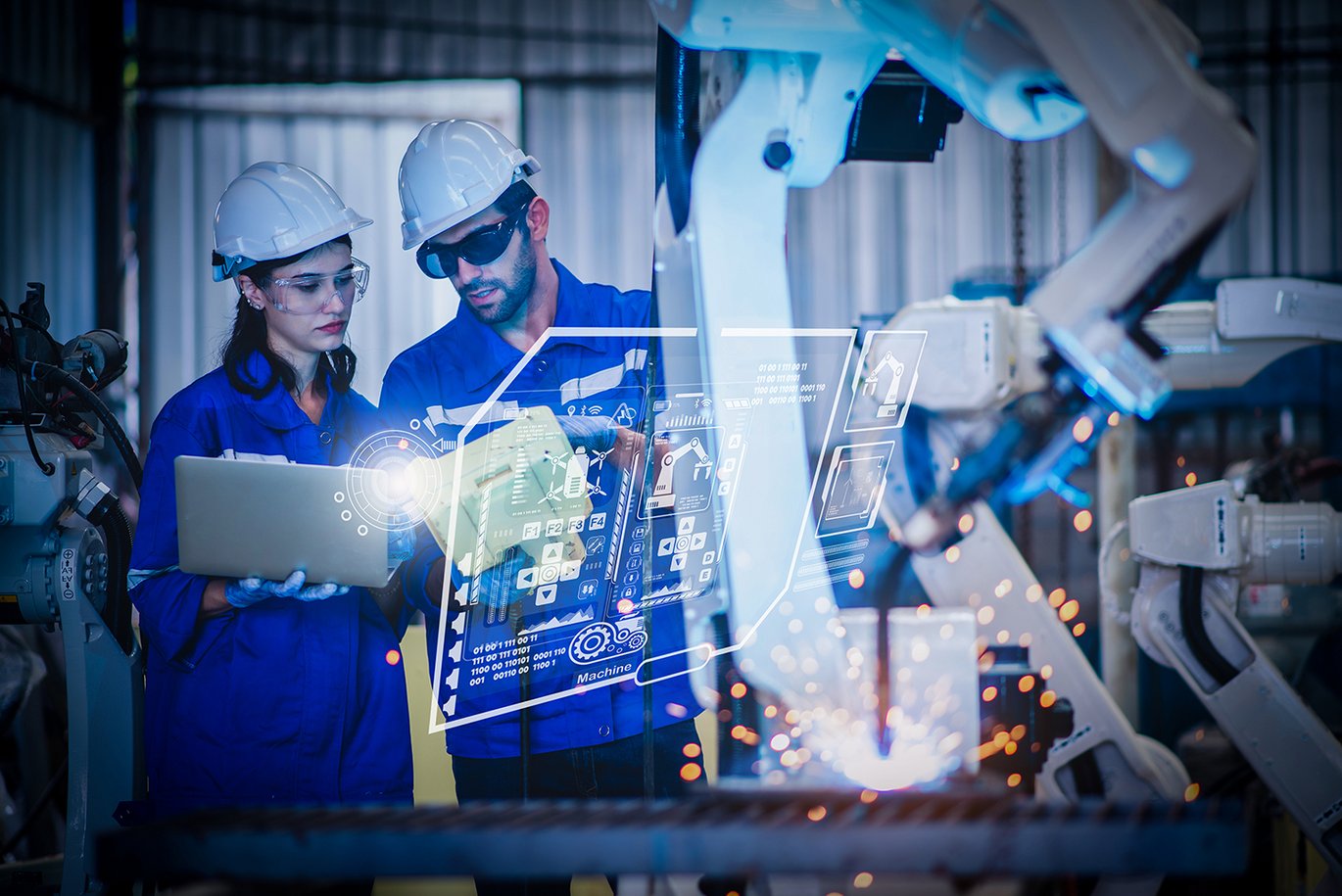Digital twins to make manufacturing industries more resilient to unforeseen events.
Force majeure, war, blocked trade routes, pandemics. Unforeseen breakdowns in the global supply chain caused by sudden events make manufacturing industries vulnerable. A new international research project will now attempt to deal with the issue.


In March 2021, the 400-metre-long container ship Ever Given was wedged across the Suez Canal for six long days when its bow struck the canal bank. The nearly week-long involuntary blockade of one of the world's most important trade routes was very costly for global trade.
The incident came on top of the Covid pandemic and less than a year before the war in Ukraine, both of which also caused serious supply problems for European manufacturing industries. And it highlights the vulnerability of global supply chains to what at first was just force majeure, and the delays cost businesses a fortune all over the world.
Tackling such challenges to businesses is the central focus for the pan-European research project, ACCURATE, which brings together researchers, small and medium-size businesses, global businesses, and NGOs to make industries more resilient to unforeseen disruptive events. The EU's research and innovation funding programme, Horizon Europe, is funding the project with DKK 45 million (EUR 6 million).
"Unforeseen events such as power blackouts, earthquakes, geopolitical tensions, war and ships wedged across trade routes are a huge problem for manufacturing, as the industry relies on free, uninterrupted trade to keep the wheels in motion," says Associate Professor Devarajan Ramanujan from the Department of Mechanical and Production Engineering at Aarhus University, and head of the Danish part of the project.
He continues:
"The aim of our project is to simulate, in real-time, the impact of both natural and man-made disruptions – on entire manufacturing ecosystems – so that businesses can become more robust and get the critical support they need in difficult situations to adapt their processes and restore trade networks and industrial systems. These aspects are critical for European manufacturing companies so they can stay ahead of how to move on as quickly as possible and build resilient supply chains, while becoming more sustainable and circular."
To realize these ambitions the project will create so-called multi-level digital twins to make a complete simulation of industrial value chains from the individual machine on the factory floor to entire supply chains.
“These digital twins will give researchers insight into the consequences of a single disruptive event in a single factory for the entire value chain. The simulations will be combined into advanced decision-support tools that can be adopted by manufacturing companies and their supply networks to become more resilient.”, says Assistant Professor Rami Mansour from the Department of Mechanical and Production Engineering at Aarhus University.
Associate Professor Jalil Boudjadar from the Aarhus University Centre for Digital Twins, which is managed by the Department of Electrical and Computer Engineering, explains:
"There will always be disturbances. Perhaps there’s a fire in a factory somewhere. Perhaps there’s a power cut. Or perhaps there’s a local or a more regional event like an earthquake. A complete simulation of the system will help us understand and plan for such disturbances in advance and minimise their impact. We’ll be able to simulate and analyse events and build resilience into everything from production lines to individual manufacturing processes. Furthermore, ACCURATE will enable swift adaptation of logistics and production planning to mitigate the impact of such varying external conditions with the goal to maintain high sustainability, circularity, and resources utilization efficiency.”
He continues:
"When an unforeseen event occurs, our digital twin platform can help assessing the impact, identify mitigation options and analyse these options to find out the costs for production, sustainability, the environment, the bottom line and a number of other performance indicators. In this way, we can create intelligent, interconnected production networks."
The ACCURATE (Achieving Resilience Through Manufacturing as-a-service, Digital Twins, and Ecosystems) project was launched in December 2023 and will run for three years. The project is a collaboration between Airbus, Continental, Software Imagination & Vision, Enginsoft, Tronico and DeltaDao, the NGO Institute of Entrepreneurship Development, and the research institutions Institut Mines-Télécom, Fraunhofer Institute for Industrial Engineering, HWR Berlin and Aarhus University.
At Aarhus University, the ACCURATE project involves Associate Professor Devarajan Ramanujan and Assistant Professor Rami Mansour from the Department of Mechanical and Production Engineering and Associate Professor Jalil Boudjadar from the Department of Electrical and Computer Engineering.
Contact
Associate Professor Devarajan Ramanujan
Department of Mechanical and Production Engineering, Aarhus University
Mail: devr@mpe.au.dk
Tel.: +45 93508848
Assistant Professor Rami Mansour
Department of Mechanical and Production Engineering, Aarhus University
Mail: ramimansour@mpe.au.dk
Tel.: +45 93508867
Associate Professor Jalil Boudjadar
Department of Electrical and Computer Engineering, Aarhus University
Mail: jalil@ece.au.dk
